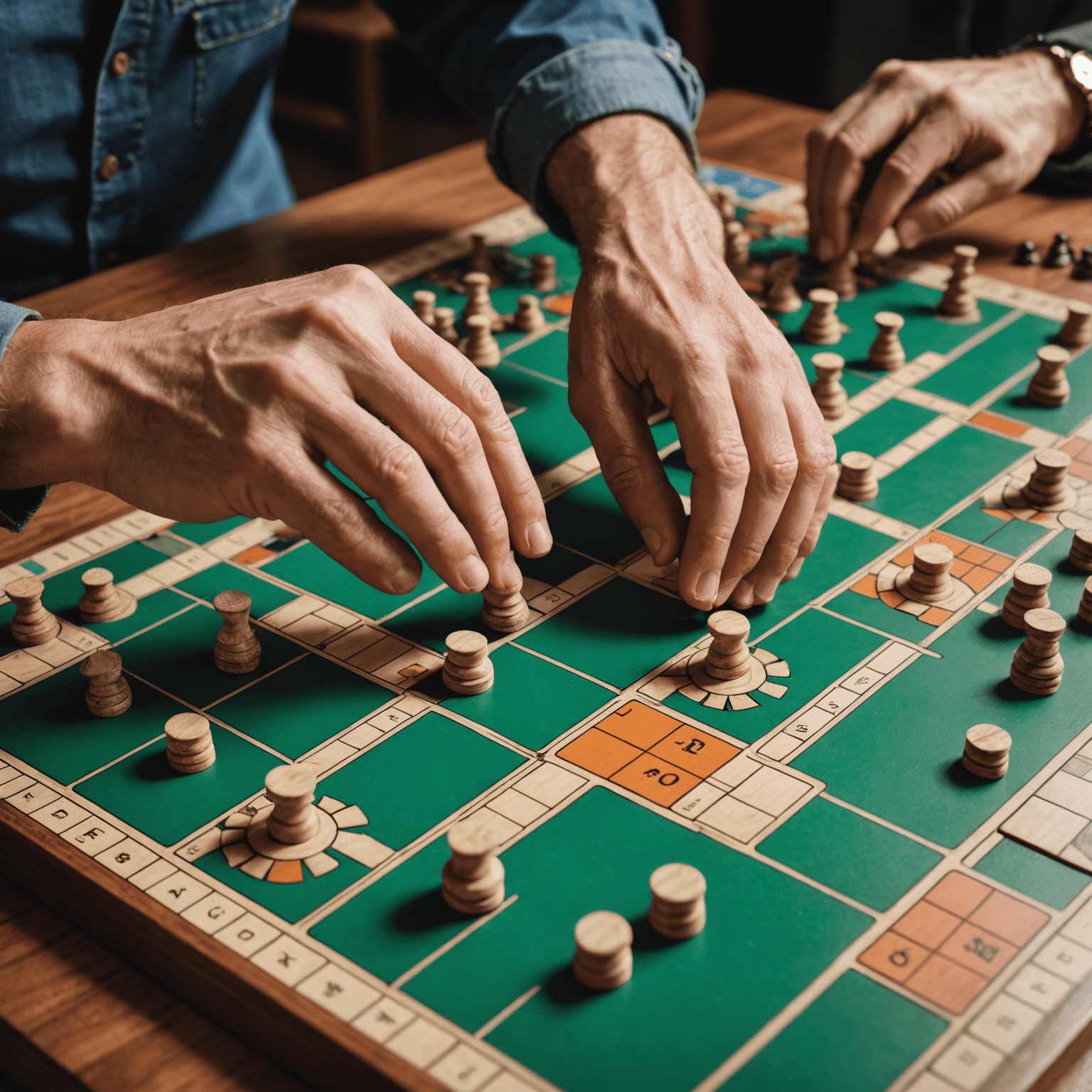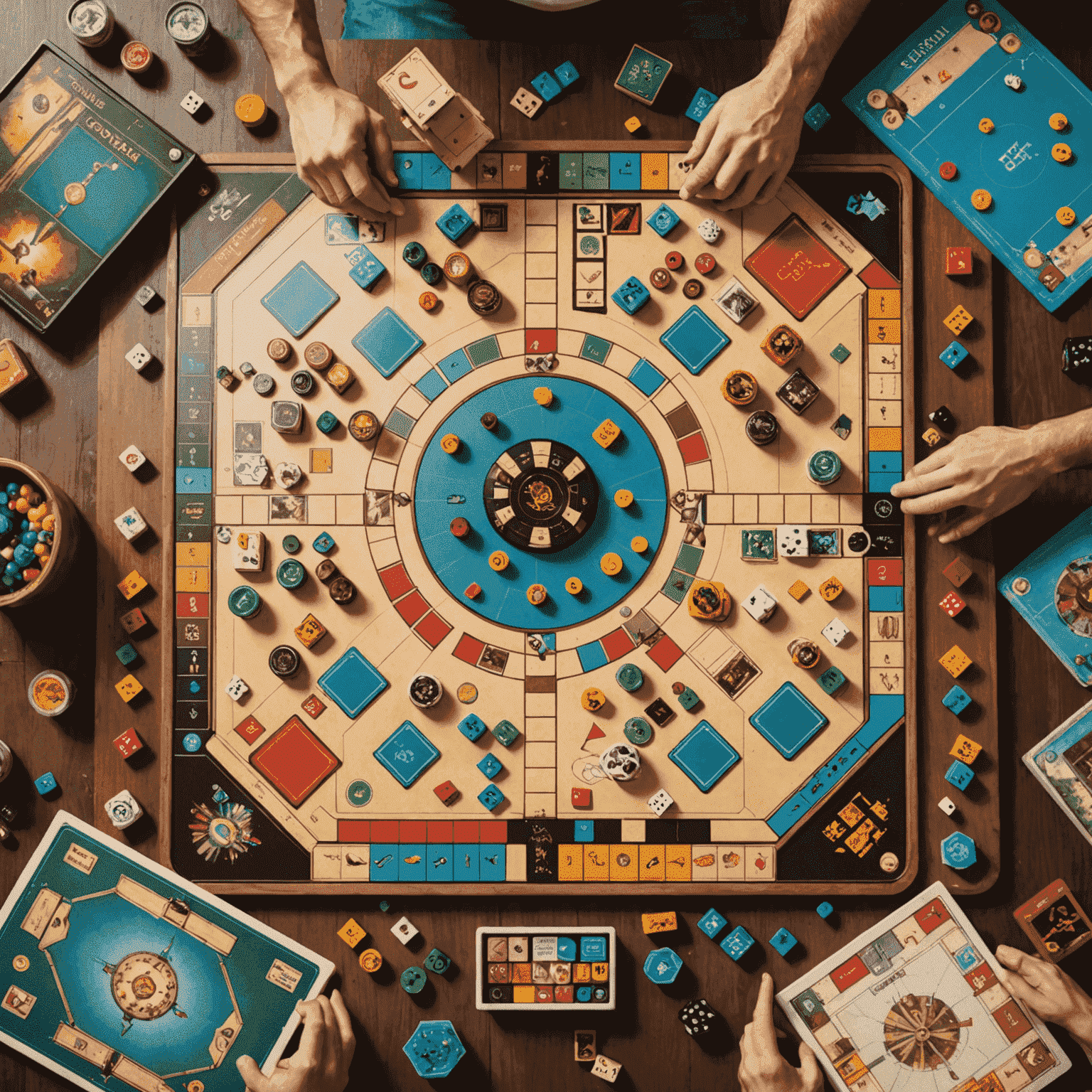Creativity Unleashed: Modern Board Games and Innovation

In the digital age, where screens dominate our leisure time, modern board games are making a remarkable comeback, proving to be powerful tools for fostering creativity and innovative thinking in both children and adults. This resurgence is not just about nostalgia; it's about the unique ability of contemporary board games to challenge our minds and unleash our creative potential.
The Evolution of Board Games
Today's board games are a far cry from the simple roll-and-move mechanics of yesteryear. Game designers are pushing boundaries, incorporating complex strategies, narrative elements, and even integrating technology to create immersive experiences. These innovations require players to think outside the box, adapting to new scenarios and devising creative solutions to overcome challenges.
Fostering Creative Problem-Solving
Modern board games often present players with unique problems that have multiple solutions. Whether it's building a civilization, solving a mystery, or managing resources, these games encourage players to approach challenges from different angles. This open-ended problem-solving mirrors real-world scenarios, helping players develop flexible thinking skills that are crucial in today's fast-paced, ever-changing world.

Collaborative Creativity
Many contemporary board games emphasize cooperation over competition. These collaborative games require players to work together, combining their ideas and strengths to achieve a common goal. This fosters a unique form of collective creativity, where the best solutions emerge from the synergy of multiple perspectives and ideas.
Storytelling and Imagination
Role-playing and storytelling games have gained immense popularity in recent years. These games provide a framework for players to create and inhabit rich, imaginative worlds. By encouraging players to think narratively and develop characters, these games nurture storytelling skills and expand the boundaries of imagination.
Adapting to New Rules and Systems
Each board game comes with its own set of rules and systems. Learning and adapting to these varied rulesets exercises cognitive flexibility, a key component of creative thinking. Players must quickly understand new concepts, adapt their strategies, and find innovative ways to succeed within the game's constraints.

Breaking Mental Patterns
Creative thinking often requires breaking away from established patterns of thought. Many modern board games are designed to subvert expectations and challenge conventional thinking. By presenting familiar concepts in unfamiliar ways, these games encourage players to break free from mental ruts and explore new possibilities.
The Social Aspect of Creativity
Creativity doesn't happen in a vacuum, and board games provide a social context for creative expression. The interaction between players, whether competitive or cooperative, sparks new ideas and approaches. Observing how others tackle challenges can inspire novel solutions and expand one's creative repertoire.
Conclusion
As we continue to navigate a world that increasingly values innovation and creative problem-solving, modern board games offer a unique and engaging way to develop these crucial skills. By presenting complex challenges, encouraging collaboration, and fostering imagination, these games do more than entertain – they unleash the creative potential within us all. So the next time you gather around a table to play a board game, remember: you're not just playing; you're innovating, creating, and preparing your mind for the challenges of tomorrow.